Problem-Solving Skills Reading Comprehension Worksheets for Ages 5-6
6 filtered results
-
From - To
Enhance your child's reading comprehension with our engaging Problem-Solving Skills Worksheets specifically designed for ages 5-6. These worksheets help young learners navigate stories and understand context through hands-on practice. Each activity promotes critical thinking by encouraging children to predict outcomes, identify problems within narratives, and propose solutions, all while developing essential reading skills. Tailored for early grade students, our materials incorporate fun themes and interactive tasks to keep learning enjoyable. Perfect for busy parents and teachers alike, these worksheets foster independence and confidence in young readers, making comprehension a key component of their educational journey. Unlock your child's potential today!
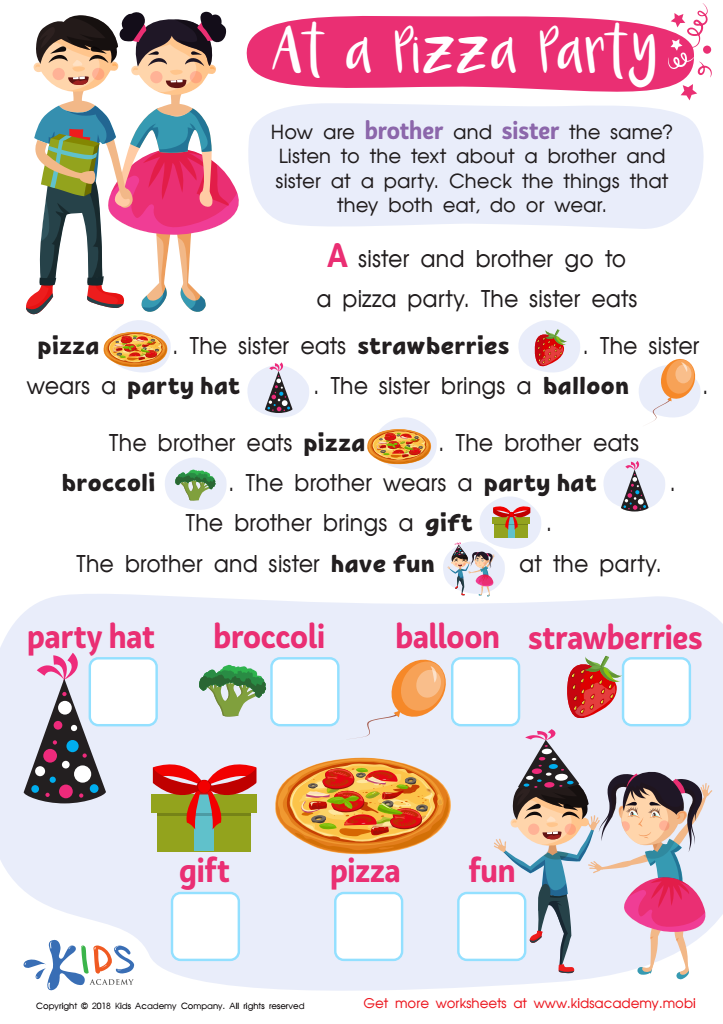

At a Pizza Party Worksheet
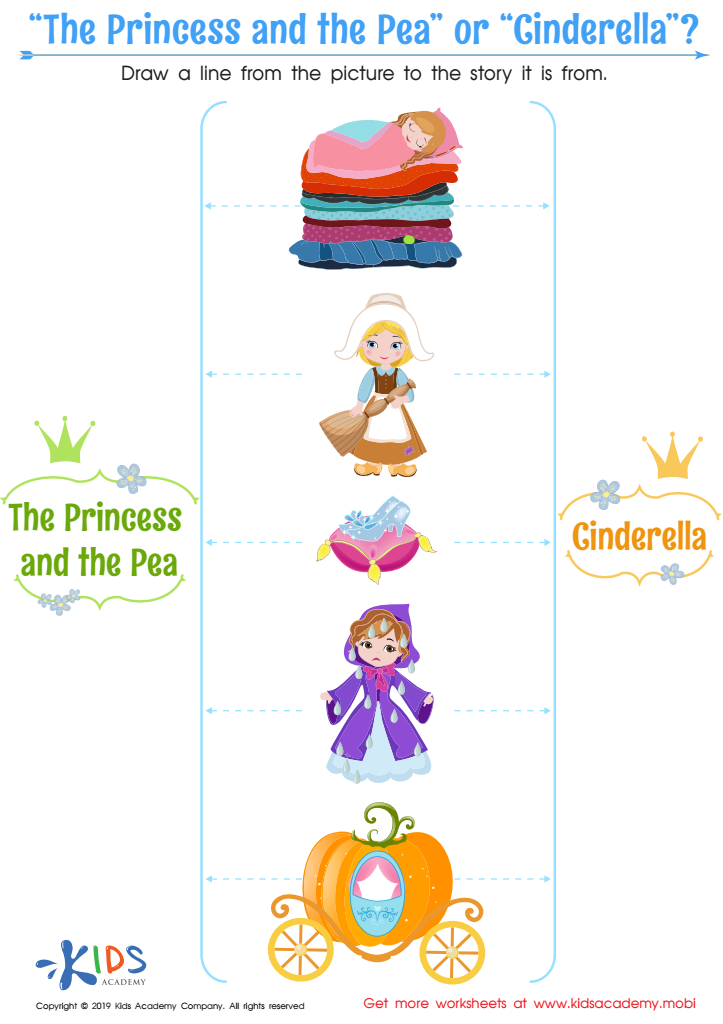

“The Princess and the Pea” or “Cinderella” Worksheet


Towns Worksheet
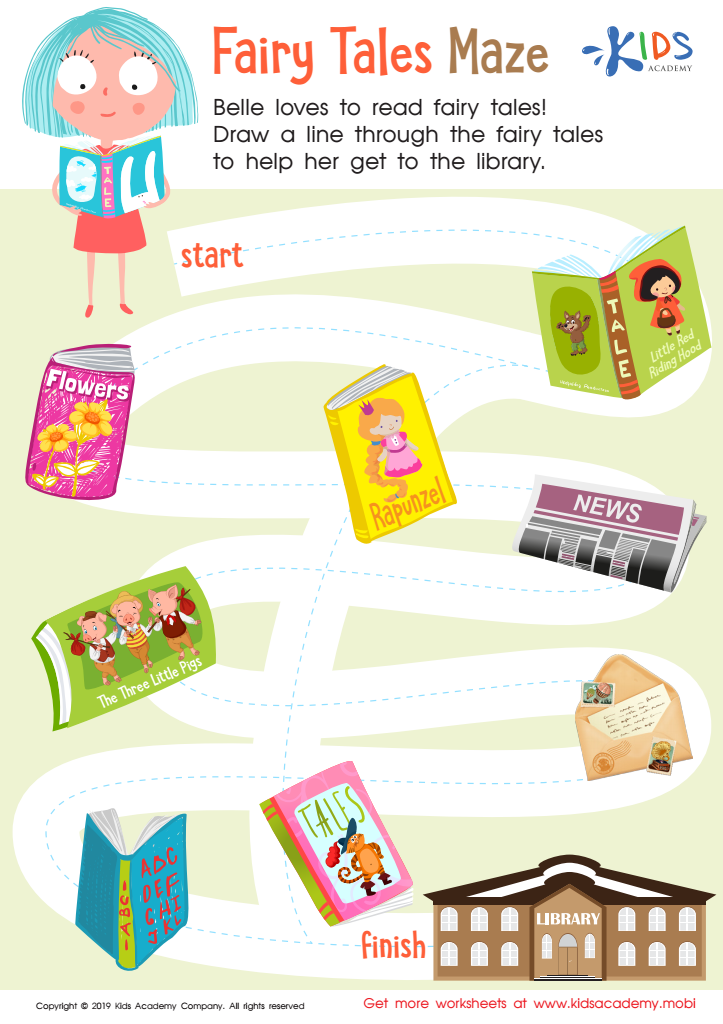

Fairy Tales Maze Worksheet
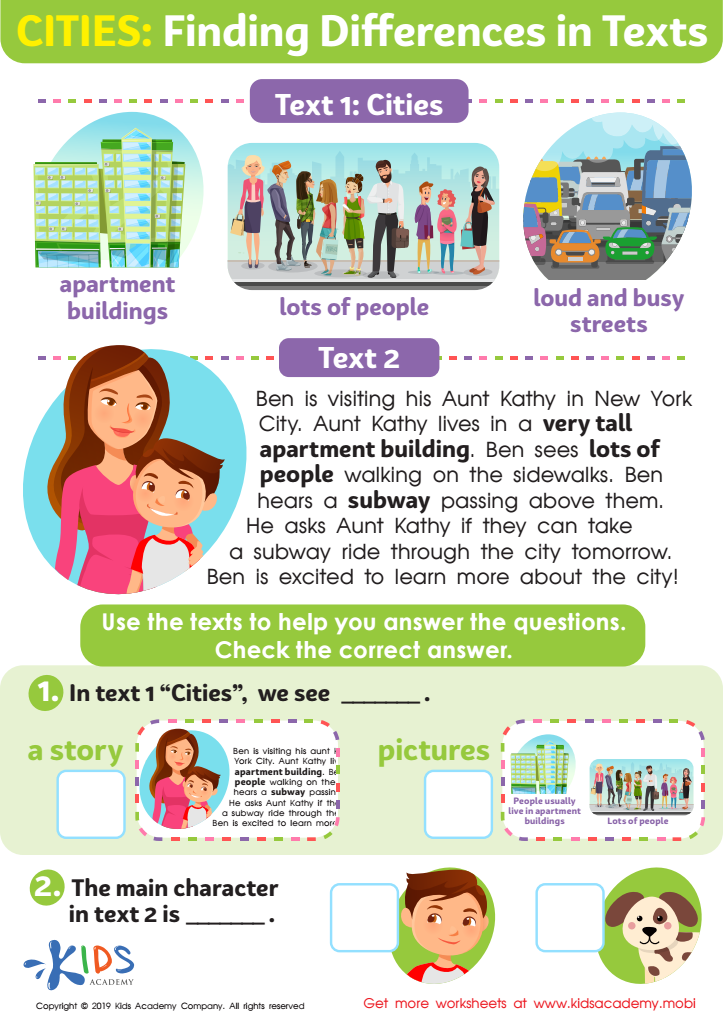

Cities: Finding Differences Worksheet
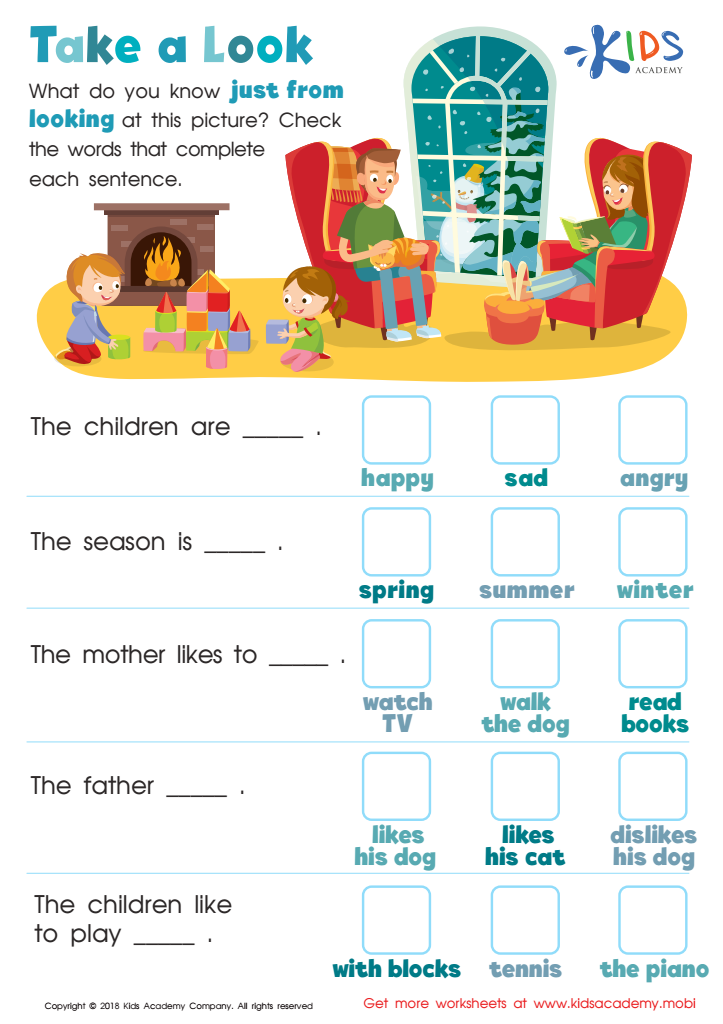

Take a Look - Part 1 Worksheet
Problem-solving skills and reading comprehension are fundamental abilities that lay the groundwork for a child's academic and social success. For children aged 5-6, these skills are particularly crucial as they transition into more structured learning environments. Parents and teachers should prioritize enhancing these skills because they foster critical thinking and engage children's curiosity.
Effective problem-solving skills enable young learners to approach challenges with confidence, helping them navigate academic tasks and everyday situations. When children can comprehend what they read, they develop their ability to think deeply, question, and make connections between ideas, which is essential not just in literacy but also across all subjects.
Moreover, building these skills early promotes independence and resilience. Children equipped with strong comprehension can express their thoughts clearly, collaborate with peers, and articulate their reasoning. This lays the foundation for effective communication and emotional intelligence, qualities that are invaluable in personal and academic settings.
Ultimately, fostering problem-solving and reading comprehension skills in young children equips them for future challenges, making it vital for parents and teachers to focus on nurturing these abilities from an early age. They are not just skills for school but life skills critical for long-term development and success.
 Assign to My Students
Assign to My Students






.jpg)









